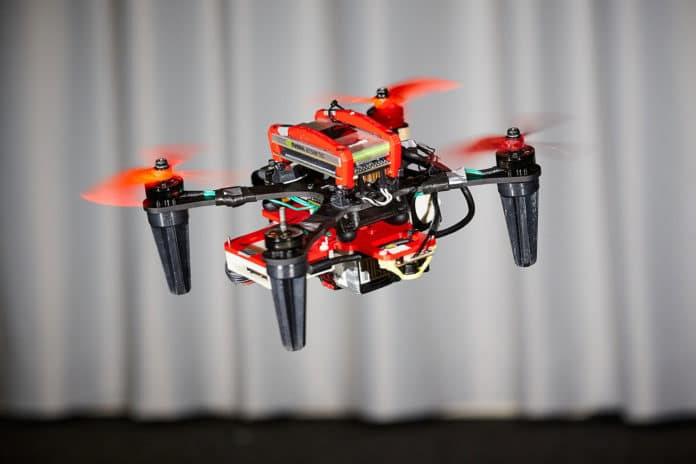Drones with four propellers – also known as quadcopters – can carry out an impressive range of tasks, ranging from military operations to package delivery, thanks to their ability to smoothly hover in place and fly in all directions. But, when one of the four propellers fails, the drone loses stability and inevitably crashes unless an emergency control strategy sets in.
Researchers at the University of Zurich and the Delft University of Technology have now found a solution to this problem. Their emergency control strategy uses information from onboard cameras to stabilize the drone and keep it flying autonomously after one rotor suddenly gives out.
Rotor failures on drones can cause dangerous accidents. “If a rotor fails, the quadcopter begins to spin like a ballerina,” explains robotics researcher Davide Scaramuzza in a statement from the University of Zurich. This rotation leads to the fact that the robot – if GPS reception is absent or weak – can no longer determine its exact position and crashes.
The researchers equipped a small quadcopter with two tiny onboard cameras. One of these was a standard optical camera, which records images several times per second at a fixed rate. The other was event cameras, which are based on independent pixels that are only activated when they detect a change in the light that reaches them.
The team also developed algorithms that combine information from the two sensors to track the quadcopter position in the area. This enables the onboard computer to control the drone while it only flies with three rotors. Test flights showed that both types of cameras work well in normal lighting conditions and can be precisely controlled by the on-board computer. “When illumination decreases, however, standard cameras begin to experience motion blur that ultimately disorients the drone and crashes it, whereas event cameras also work well in very low light,” says Sihao Sun, a postdoc in Scaramuzza’s lab.
The use of drones is steadily increasing, and rotor failures can lead to dangerous accidents. The scientists believe that their work can improve quadrocopters’ flight safety in areas where the GPS signal is weak or absent.
